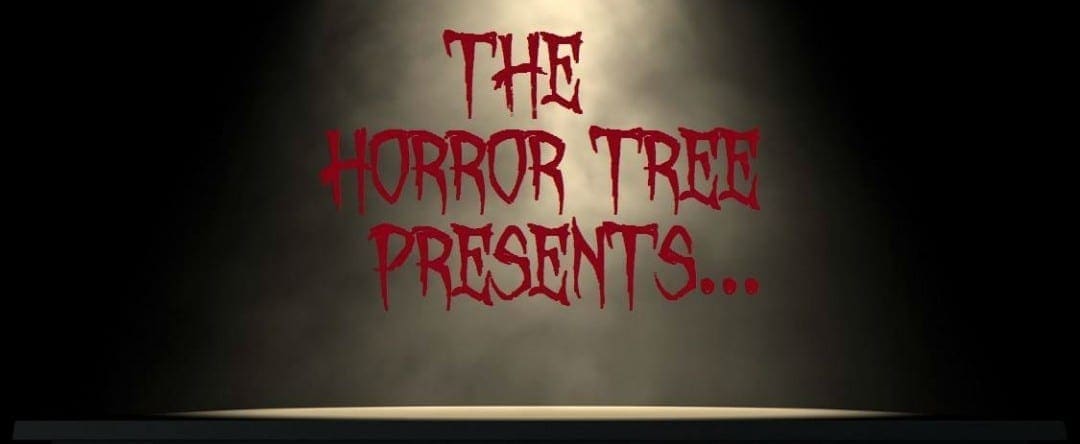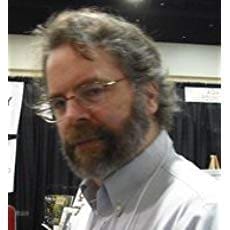The Horror Tree Presents… An Interview with Edmund Stone

 Lucien – On your website you mention that your grandmother was the one who got you into writing, that she was a fantastic story teller. Would you have considered her a mentor as well as an inspiration?
Lucien – On your website you mention that your grandmother was the one who got you into writing, that she was a fantastic story teller. Would you have considered her a mentor as well as an inspiration?
Edmund – Absolutely. She was all those things to me. I watched the sparkle in her old eyes, as she told the same stories over and over, each time they seemed new because of the way she told them. She was a gifted poet and orator. I’m sure she is somewhere smiling at me and still telling her stories. I’m sure I will include her in one of my stories someday.
Lucien – I loved that you mention, “art is a journey”. How was it that you went from poetry to narrative fiction?
Edmund – It was a strange transition. Writing narrative fiction was something I needed lots of practice with. I feel my first attempts were good, but they lacked something. For the longest time I thought I wanted to be a fantasy or sci-fi writer. But the more I wrote, the more I could see the dark side of me coming out. Horror was the genre I started out with, reading and writing dark poems and stories when I was in college. So, once I started writing in the genre again, I noticed a transition in my writing and received better comments from my writers’ group. The narrative style became more natural and my poems have become darker. Now my artwork is reflecting the worlds I’m creating. It all goes together nicely.
Lucien – What do you find more difficult, short stories/novellas or poetry?
Edmund – They all have their level of difficulty, but the short story is probably the hardest for me. I seem to be able to put a lot of words on a page in a relatively short time. I can start a short story and it will end up being twenty thousand words in no time. Since my goal is to write novels and novellas, I think this is a good thing. I have two novels and two novellas in rough draft form now, the real chore will be rewriting and editing all of them. With short stories there is usually a word count limit, which is hard for me to keep under. The first story in my new short story collection is over 10000 words, and I have others over 5000. This collection isn’t flash fiction.
Lucien – Who would you say are your top three horror influencers?
Edmund – Edgar Allan Poe, Clive Barker, and Stephen King.
Lucien – Having grown up on several different styles of horror, do you have a favourite subgenre?
Edmund – Sci-fi or cosmic horror. The novella I’m currently rewriting is sci-fi horror. I hope to have it out by the end of February, if all goes well.
Lucien – Your blog has many posts about your project, Tent Revival, that you have been working on for some time. Care to give the readers a little peak into what it’s about?
Edmund – My baby. Tent Revival started out as a tribute to the small town I live in. I thought, we have a lot of crazy characters around here, why not mix in an ancient evil and give them something to talk about? It has grown into something much larger. All because of the character Rebecca. She is cosmic as well as ancient and mythic, all rolled into one. But with an innocence that’s mesmerizing. When I first started writing her, she didn’t even have a name. Now she is forming what I like to call the Rebecca cult or mythos. The novella I mentioned earlier will have tie ins to the novel. She has a cast of characters who follow her with names like Sage and Samson. I plan to have the novel done by the end of the year or sooner and start looking for publishers. If no one bites, I will self-publish it. I do believe everyone will love it as much as I do.
 Lucien – You also appear to be doing a lot of artwork for the novel. Do you have an art background as well as a writing one?
Lucien – You also appear to be doing a lot of artwork for the novel. Do you have an art background as well as a writing one?
Edmund – I took art classes in High School and a few in college, but the rest is self-taught. I mostly work with charcoal and pencils, but I’m branching into graphic art and computer-generated images. Art is my meditation. When I’ve written as much as I can, I turn to my sketches to unwind. The good thing is, I can use them in my books now.
Lucien – Was there any specific reference or inspiration for these sketches?
Edmund – I suppose the characters in my book. I just wanted a way to express Rebecca and the others and what you see is what came from it. The Tent Revival sketch was a compilation of ideas. I wanted to show her beauty and evil all in the same expression. I originally thought I would draw her head only. The skull came later, it seemed natural.
 Lucien – Will these concept sketches lead to illustrations within the novel?
Lucien – Will these concept sketches lead to illustrations within the novel?
Edmund – I’m sure they will. The Tent Revival sketch or a form of it will be on the cover unless it’s picked up by a publisher and they decide they don’t want it. But hopefully I’ll find someone who gives me some room to do my own thing. If it’s self-published, then it will be there.
Lucien – If you had to compare Tent Revival to another famous horror story (book or film) to help draw in horror fans, what would you compare it to?
Edmund – Night of the Living Dead meets True Blood (the TV show made from the Sookie Stackhouse novels). But that’s a loose comparison. This story isn’t about vampires or zombies.
Lucien – When planning a large project like this are you more likely to dive in headfirst or write out an outline of the general idea?
Edmund – I’m a panster when it comes to writing, I dive in and dig myself a big hole and let my characters dig me out. The only outlining I do is drawing pictures to get ideas before writing them down, but I don’t always do it that way. I mostly start writing and let the story come to me as I write it.
Lucien – You talk very fondly of your writing critique group. How did you go about finding the group?
Edmund – By accident. I wanted to join a contest and found one on a website called the Write Practice. Once I entered the contest, I had the option of joining the group. After reading up on it a little, I thought why not? A whole community of beta readers must be a good thing. I’ve grown as a writer much faster as a result. I’ve met some good friends who I keep in contact with and the sense of community is great. Writers supporting writers you can’t beat it.
Lucien – What is one piece of key advice you want every upcoming author to know when they approach their first project?
Edmund – Don’t be too hard on yourself. You will always be your own worst critique. Go into every project to enjoy the process of writing and creating. The countless hours I spend on my computer or at my drawing pad are therapy. I would go crazy without it. Always keep that in mind. You’re not in this to make loads of money, you do it because you enjoy it. To me, there is no greater joy than to have a reader tell me they loved my work. That is the reward. If I make money at my writing someday then it will be the icing on the cake.
Lucien – What has been your biggest writing challenge so far? How did you handle it?
Edmund – Writing the rough draft of my first novel. I tried to write a novel a couple of times before and failed miserably. I joined NANOWRIMO in 2017 and wrote Tent Revival, although didn’t finish it until June of the next year. It remains in rough draft, but it has grown to encompass some other projects of mine. The first thing I did when I completed the draft was upload it to my new Scrivener purchase. That made things much easier. I’m not going to rush it though. Tent will be done when it’s done. Hopefully sooner than I think. I’ll be putting it through my writers’ group soon, to get beta reader advice.
Lucien – And lastly, if readers wanted to get a taste of your poetry or short fiction, where would they be able to find it?
Edmund – Go the Siren’s Call issue #39 and #42 and check out a couple of my poems and a short story, free to read. If you like them, check out my new book Hush My Little Baby, a collection featured on Amazon. You won’t be disappointed.
Lucien – You can learn more about Edmund and his work via his website and you can find his short fiction below as well.
Website: https://edmundstoneauthor.com/
Publications: http://www.sirenscallpublications.com/
https://www.amazon.com/Edmund-Stone/e/B075D4F6W9%3Fref=dbs_a_mng_rwt_scns_share

 Lucien – It would seem that you have a wide variety of interests including software engineering and bug hunting. How is it that you came to pursue writing?
Lucien – It would seem that you have a wide variety of interests including software engineering and bug hunting. How is it that you came to pursue writing? Lucien – Which of your stories would you recommend to a new reader who wanted to get the best example of your style?
Lucien – Which of your stories would you recommend to a new reader who wanted to get the best example of your style?






